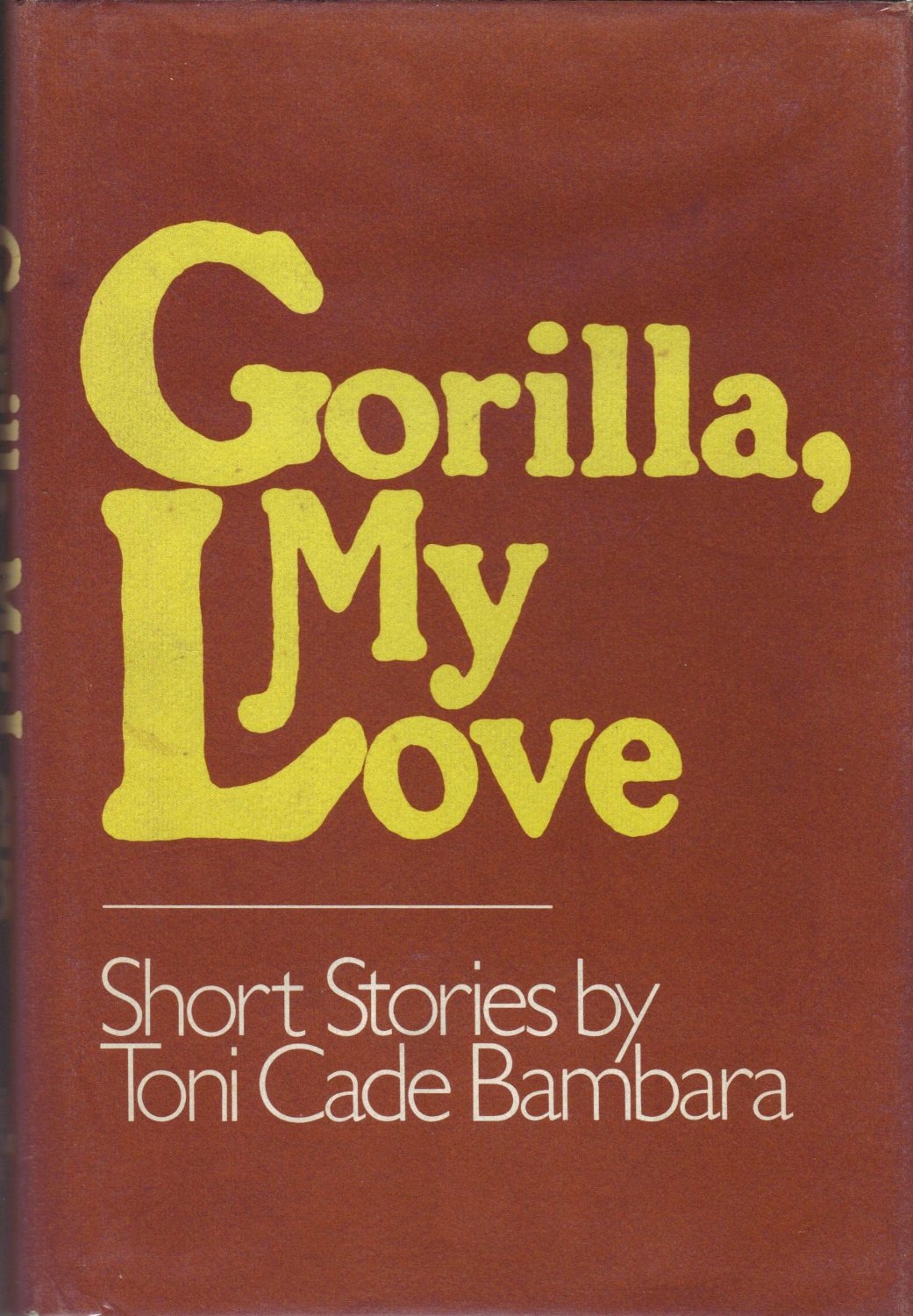
photo by M Bergman
by Patrick Yarker
A good teacher is a portal. Through her, students are ushered to meet experiences they would never meet otherwise. No wonder, then, that the teacher in Toni Cade Bambara’s story ‘The Lesson’ is named Miss Moore. And nothing more. ‘The only woman on the block with no first name.’ She embodies that ‘more’ which she fervently wants from her students, and which their parents and grandparents, aunts and cousins want for them, at least when Miss Moore comes calling.
A college graduate, Miss Moore has returned with her knowledge, her sober clothes and her undisuadable dedication, to the streets of late-60s Harlem to help educate the next generation, much to its irked disdain. ‘School suppose to let up in summer,’ says Sylvia, the surly narrator, towards whom Miss Moore shows a particular commitment, ‘but she don’t never let up’.
 A mailbox on a hot street-corner is the home-room for this class, where eight youngsters are gathered, with varying degrees of animosity or resignation, to attend to Miss Moore. Their personalities, and statuses, are conveyed partly through their nicknames (or in the case of Mercedes, through lack of one) and partly through the ways they talk about the topic life has set them: how to grow up and make it as an African-American in White-ruled society.
A mailbox on a hot street-corner is the home-room for this class, where eight youngsters are gathered, with varying degrees of animosity or resignation, to attend to Miss Moore. Their personalities, and statuses, are conveyed partly through their nicknames (or in the case of Mercedes, through lack of one) and partly through the ways they talk about the topic life has set them: how to grow up and make it as an African-American in White-ruled society.
But it is poverty, or rather the unjust distribution of the social product, which is the focus of this story. Racism is a given, like the air; so all-pervasive it’s hardly worth three words. ‘White folks crazy.’ (But that explanation for the way things are, offered by Sylvia early on, is, she realises later, in need of refinement). Miss Moore wants her charges to think a little further. And so she gives Sylvia money for the cab-ride and a maths problem to solve before the taxi arrives outside F.A.O. Schwartz, the most expensive toy-store on the most expensive avenue in Manhattan.
You cannot, said philosopher Ludwig Wittgenstein, lead people to the good; you can only lead them to some place or other; the good lies outside the space of facts. When he realised, after a handful of terms, that he was not meant to be a teacher, at least of the young, Wittgenstein quit his post in a provincial primary school. He’d written his class a spelling-dictionary, to awaken the orthographical conscience, but ‘the more’ he embodied was not for those children. Nevertheless, his view of the good and its relation to any actual place (where perhaps the good might be intuited or understood) seems to me to offer a pedagogy in miniature, and one Miss Moore seems to share.
She, however, gives it a political twist. She brings the next generation to a chosen place, that it may work on them. So Flyboy and Q.T. and Rosie Giraffe and all the others study the riches behind the toy-store’s plate-glass. They double-check the digits on the price-tags, and measure their own needs and longings and circumstances against what they see. Miss Moore watches them, and lets them find that, footloose and unfettered as they are, they can’t for some reason cross the threshold of this store. To her disgust and consternation, even Sylvia hangs back. ‘Not that I’m scared, what’s there to be afraid of, just a toy store. But I feel funny, shame.’ And later, once she has made it inside and has wandered, gazing, among the microscopes and sailboats and paper-weights and cuddly toys and doll’s houses and dolls too, and has almost brought herself to touch these treasures, she feels angry. Though not so angry that she can’t begin to think this day through.
Back uptown at the mailbox, teacherly Miss Moore asks a few questions and gets a few dusty answers. ‘What kind of society’ is it…? Sylvia knows the answer to that one, but she won’t play the game. Like Dustin Hoffman in the lecture-room at the start of Marathon Man, or Billy Caspar, hands still smarting from the cane-strokes that welcomed him to yet another day in a school which has utterly misconceived him, or Antoine Doinel in Les Quatre Cent Coups whose passion for the writings of Balzac is ignorantly, culpably, taken for plagiarism by his bone-headed teacher, Sylvia will not be a party to this rigged exchange with Miss Moore. And so the story, which began with a kind of once-upon-a-time, ends with this poignantly defiant pledge of silence.
 Is it poignant? I suppose that depends on the reader. When I used to teach ‘The Lesson’, I was surprised, initially, how few of my students liked Sylvia. I thought her sharpness and energy must appeal, but my students responded hostilely to her own hostility, and to what they took to be her arrogance. They were equally quick to condemn other aspects of the story. Aren’t the kids pretty stereotyped? Is Big Butt the same character as Fat Butt, and if so, why does he have two nicknames? What’s the point of the side-tracking anecdote Sylvia tells about the Catholic church? And why is she so mean to her best friend? Unconvinced by my paean to the sustained rhythmic verve of the writing, its tonal shifts, its sense of timing and the way it accommodates an adult perspective within the voice of young Sylvia, they at least relished the chance to update the street-slang. They deprecated the offensive language, or justified it. When they took up Miss Moore’s question about the nature of society, some responded as Sugar does and some kept their own counsel.
Is it poignant? I suppose that depends on the reader. When I used to teach ‘The Lesson’, I was surprised, initially, how few of my students liked Sylvia. I thought her sharpness and energy must appeal, but my students responded hostilely to her own hostility, and to what they took to be her arrogance. They were equally quick to condemn other aspects of the story. Aren’t the kids pretty stereotyped? Is Big Butt the same character as Fat Butt, and if so, why does he have two nicknames? What’s the point of the side-tracking anecdote Sylvia tells about the Catholic church? And why is she so mean to her best friend? Unconvinced by my paean to the sustained rhythmic verve of the writing, its tonal shifts, its sense of timing and the way it accommodates an adult perspective within the voice of young Sylvia, they at least relished the chance to update the street-slang. They deprecated the offensive language, or justified it. When they took up Miss Moore’s question about the nature of society, some responded as Sugar does and some kept their own counsel.
Once in a while, just ahead of the bell, someone would ask whether Miss Moore meant for Sylvia to keep the change from the taxi-fare: four dollars which are rightfully her teacher’s. The penny might drop for other students then, and they’d be arguing it as they headed for their next class, for break or lunch, or best of all for home. But for me the key question remains the one Miss Moore won’t ever know the answer to, any more than any teacher will who has a Sylvia in her classroom:
Miss Moore looks at me, sorrowfully I’m thinkin’. And somethin weird is goin on, I can feel it in my chest.
“Anybody else learn anything today?”
Almost fifty years after it was written, the story remains Sylvia’s. But anyone can read it. I hope when you do you will find good in it.
~
Patrick Yarker taught for twenty years in comprehensive schools in London and Norfolk. Currently he works in the School of Education and Lifelong Learning at UEA, and co-edits the longstanding journal ‘FORUM: for promoting 3-19 comprehensive education’. HappenStance Press published a pamphlet of his poems in 2010.

